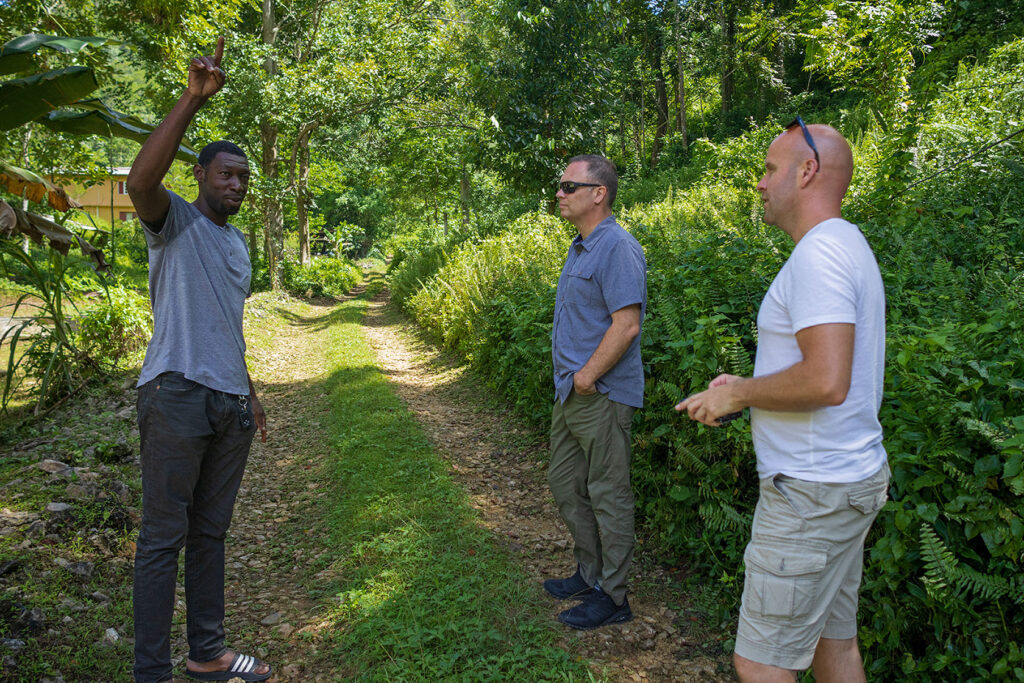A recent survey of 40,000 missionaries and 600 missions agencies found that 43 percent of missionaries do not fulfill their long-term commitment to their field.
They come home. They quit.
That percentage equates to 17,200 missionaries who left the field. That’s 17,200 difficult emails to supporters. That’s 17,200 people looking for a new job. And that’s 17,200 ministry posts left vacant.
Why many long-term missionaries don’t stay
The single greatest reason that these missionaries returned wasn’t a disqualifying sin or a health problem. It was lack of funding. The single reason most missionaries don’t last on the field is because they aren’t able to sustain their support.
From a practical standpoint, the problem of insufficient support factor can be broken down into five variables.
1. They didn’t build a network of supporting churches.
It’s common for missionaries to raise support from only a few friends, failing to cultivate additional relationships with churches once their immediate goal is met. But this strategy doesn’t pay off in the long-term.
The time to build support partnerships is before you leave for the missions field, since it’s difficult to build these relationships overseas. Therefore, if one person drops out of a small team of supporters, that could potentially cripple a missionary’s budget and force them to return to their home country.
One of the ways to prevent this is to build a strong network of churches, families, and friends to support the mission so that if a supporter stops giving, it doesn’t topple the missionary’s financial stability. Further, forming a deep relationship with one’s sending church is also vital, so that furloughing missionaries are able to come home and report to as few churches as possible instead of wasting precious ministry and rest time traveling cross-country to an excess of churches, each giving small gifts.
2. They didn’t have people praying for them.
Missions work is not merely a financial investment—it is a spiritual investment. In turn, missions support isn’t only monetary but spiritual too. The Apostle Paul wasn’t shy about asking for prayer: “Brothers, pray for us” (1 Thessalonians 5:25). Prayer solidifies the bonds of partnership between supporters and their missionaries. And because God deeply cares about reaching the nations for Christ through the church (Matthew 28:18-20), we ought to anticipate that missionaries will need prayer warriors to aid them in their labor.
3. They didn’t communicate with their supporters.
A failure to send regular ministry updates will dry up even a healthy well of church supporters. Missionaries should aim to communicate with excellence to their churches as often as possible through email newsletters, short video updates, social media, or other channels as security allows. This helps supporting churches feel involved in the ministry and keeps them aware of both the spiritual and financial needs a cross-cultural worker is facing.
4. They didn’t use a missions agency.
Missions agencies that invest their resources in equipping their missionaries have a much higher retention rate than agencies that merely put a rubber stamp on raised funds.
It’s easy to think that becoming a missionary is as simple as buying a plane ticket, but if God is leading a missionary to reaching a particular people group—which means preaching the gospel, discipling believers, and planting a church—this is a lifelong labor that requires a whole team of workers back home.
Missionaries should find a credible, quality, resourceful missions agency that can support them with wisdom, prayer, and fundraising strategy assistance. Good agencies have experience helping missionaries overcoming the obstacles to staying engaged in missions long-term. Prospective missionaries would be wise not to neglect that wisdom by merely bootstrapping financial support and flying to their destination.
5. They didn’t have access to resources.
It’s easy to burn out when you have to do everything yourself. When missionaries are spread thin handling all of their own logistics, they have little extra energy to invest in partnership development. Yet the Apostle Paul took a team with him whenever he could. Even Jesus built a community that was able to assist him in his ministry during his itinerant travel throughout Judaea and Galilee.
This, again, often means finding an agency that can supply you will communications resources, theological education, networks of other missionary partners in your area, and time-tested wisdom for your task—whether it is Bible translation, church planting, evangelism, medical ministry, educational ministry, or all of the above.
How to set yourself up for a long-term missions career
When the World Evangelical Alliance asked those same roughly-600 agencies and 40,000 missionaries what contributed to the success of the long-term missionaries who stayed, they gave four answers:
-
Development of good relationships with their support team
-
Commitment to the ministry
-
Effective leadership with good supervision and accountability
-
Clear objectives, goals and expectations that are agreed upon
I’d like to encourage missionaries raising support to develop a targeted strategy to acheive these four important outcomes, and it is my prayerful hope that the steps I’ll outline would be used of God to help you form a health ministry base.
1. Start planning for missions with a single local church.
It’s clear in the book of Acts that missionaries are sent by churches. God’s plan for church growth is that churches grow out of churches. This pattern is repeated over and over again as both Peter and Paul are sent out from churches (Acts 13:1-3), and they send out leaders from the churches they plant—such as Timothy and Titus.
Even Apollos, who was a powerful evangelist and missionary in his own right, was incorporated into a church-centered missions strategy, because his being a solo missionary had cultivated certain theological deficiencies that needed to be corrected:
“He began to speak boldly in the synagogue, but when Priscilla and Aquila heard him, they took him aside and explained to him the way of God more accurately. And when he wished to cross to Achaia, the brothers encouraged him and wrote to the disciples to welcome him” (Acts 18:26-27).
First and foremost, missionaries must be sent by a specific church—perhaps not God directly (as was the case with Paul), but also not merely sent merely by their friends or themselves. This allows them to set goals, think through strategies, and pray about locations, in biblical submission to the elders of the church and with the full support of the congregation (Hebrews 13:7).
2. Partner with a missions agency.
It’s harder to become a missionary through a missions agency. Agencies have their own processes. They have their own standards. They may even want you to raise more money.
But that agency will be able to partner with your local church to lead them through the process of sending a missionary that is financially, spiritually, strategically optimal—and biblical.
Your missions agency will help you pay the appropriate taxes, delegate money toward retirement, collect donations, and give your supporters tax-deductible receipts for their donations toward your missions work. Not only that, but by working with an agency’s team, you are at less risk of reinventing the wheel, unnecessarily replicating the labors of other missionaries in your field with whom you might not otherwise be connected. Simply put, the Great Commission is too massive to accomplish alone.
3. Consider involving additional churches in your ministry.
Once your church has decided to send you as a missionary, and you have partnered with a missions agency that is a good fit, you should consider expanding your support base to include other like-minded churches.
Partnering other churches will require putting together a presentation of your ministry that you constructed in partnership with your sending church and your missions agency. Pastors, elder boards, missions committees, and congregations are often surprisingly eager to meet and partner with new missionaries—but it takes wisdom, tact, and a heart to give back to the local body to cut through the noise of other missionaries simply soliciting funds.
It’s sometimes difficult to ask for support, but remember: (1) God has called you through his church to do this work, and (2) God has called churches to support exactly this kind of work, and they are eager to do it.
When you contact a church, seek to build a relationship with them. Immediately after Paul asks for prayer in 1 Thesselonians 5, he says: “Greet all the brothers with a holy kiss” (1 Thessalonians 5:26).
You may not want to kiss all of your prospective supporters during your first meeting. But you should aim to build a deep relationship with them—the kind that can support you through what can often be grueling, lonely, and high-obstacle ministry. When you meet new pastors, ask about their church. Take interest in their people. Ask how you can add value to them. Do the kind of ministry you want to do on the field with them. Show them what God has called you to do by doing it with their church, and you will build the kinds of relationships, church after church, that often lead to decades-long financial and spiritual partnerships that yield much fruit for the gospel.
4. Go through a missionary training program.
There are many skills—both technical skills and soft skills—that are critical to your first missionary term. While it is tempting to rush to the field with the minimal required preparation, take full advantage of every training opportunity your missions agency makes available so that you are fully equipped to go the distance for the gospel. Culture shock is real, and you will quickly discover living overseas that a lack of training never pays off.
Build the kind of foundation for your ministry that will enable you to say of your calling to missions in 50 years:
“I have fought the good fight, I have finished the race, I have kept the faith. Henceforth there is laid up for me the crown of righteousness, which the Lord, the righteous judge, will award to me on that day, and not only to me but also to all who have loved his appearing” (2 Timothy 4:7-8).
5. Create a strategic communications plan to keep in touch with your supporters.
Sticking to a communications schedule is one of the ways to maintain an effective fundraising strategy. Regular communication not only strengthens the relationship between you and your supporters but also supplies your own soul regular opportunities to reflect on God’s faithfulness in your ministry.
Even in dark seasons—especially in dark seasons—it is important to communicate with your supporters how they can pray for you. There’s no use in keeping up a facade when things aren’t going well. Missionaries are only human. Supporters understand that things don’t go perfectly all the time. By avoiding communication when things aren’t going well, you’re suffocating your need of the prayers that could solve the problem.
Bring your hardships into the light. Then, when God does provide, you can look back on those emails, videos, and newsletters and see what he was doing the entire time.
Conclusion
Again, the single greatest reason people don’t last on the field is sometimes easily preventable. Financial and spiritual support doesn’t have to be volatile. Stability doesn’t have to always feel out of reach. The greatest reason people lose support is because they didn’t partner with a local church, partner with an agency, and faithfully communicate with their supporters on a regular schedule.
In the midst of the thousands of details that go into becoming a missionary, make sure to focus heavily on these elements. They are predictive of long-term success. They are biblical. They are good for you. They are good for your local church. And they are good for the kingdom of God.
Thankfully, anybody can do them. That means that long-term faithfulness isn’t a pipe dream. It is attainable. And God can build through you a legacy for Christ among people groups who have never heard his name before.
ABWE exists to fulfill the Great Commission by multiplying leaders, churches, and missions movements among every people.




